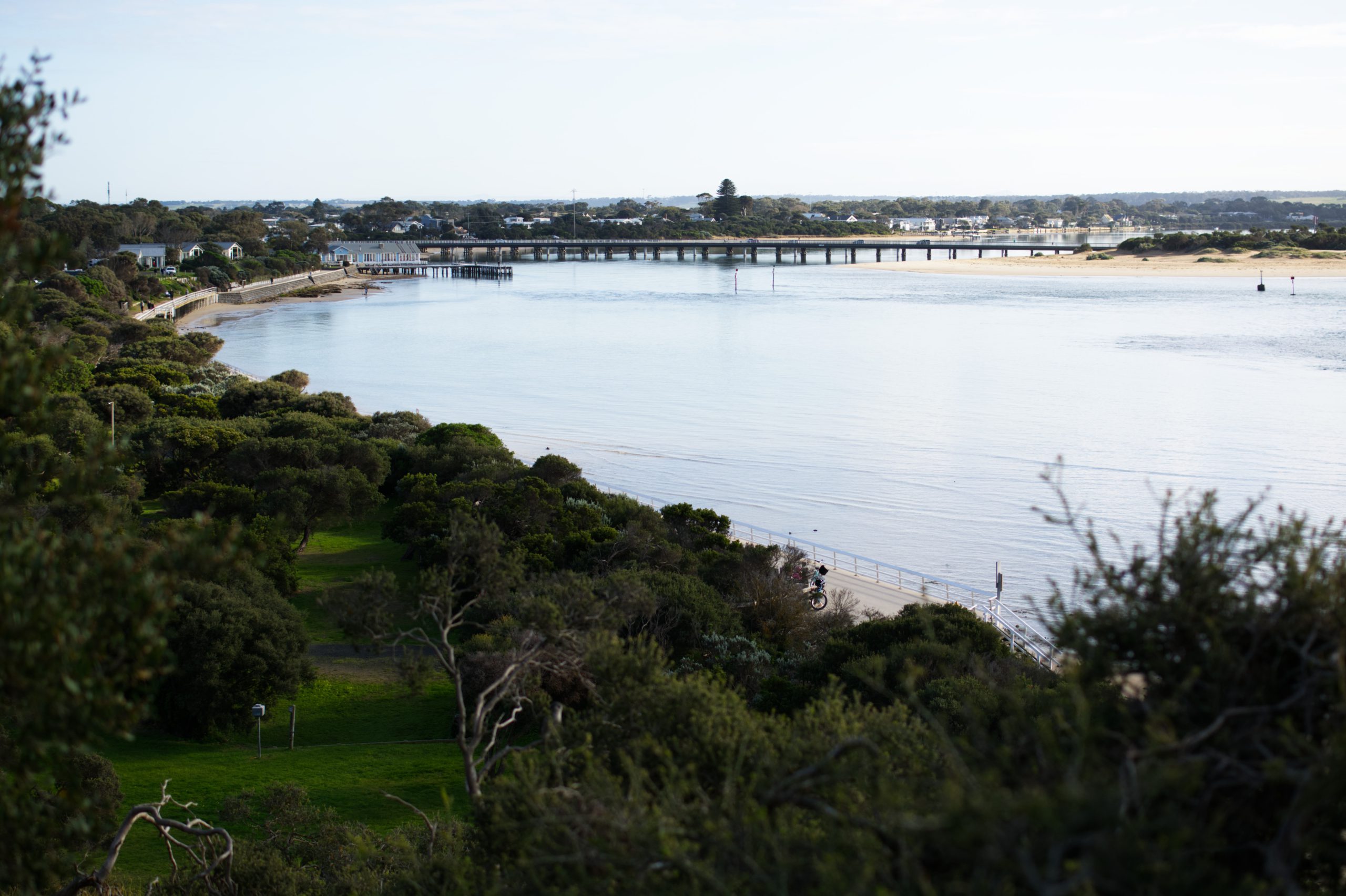
Coastal Use
The Bluff and our beaches are important places in the life of Barwon Heads and Ocean Grove. This is the place people come to walk, run, cycle, walk the dog, surf, fish, go boating or nature watching – or just sit and enjoy the company of others. They are important places for the physical and mental well-being of our community as well as being the focus for our tourism industry. Increasing recreational use of our beaches creates a number of conservation issues for wildlife and habitat. Without thinking about it, we may be loving a fragile resource to death.
Recreational impacts
- Accidentally spreading weeds from our shoes, bike tyres, and dog fur
- Disturbance to birds and native wildlife during critical lifecycle stages. For example, roosting or feeding birds waste energy when disturbed, leading to loss of body condition
- Increased demand for built assets such as steps, bike paths, trails, toilets, showers, contribute to fragmenting habitat
- Speeding in the estuary and close to shore contributes to shoreline and river bank damage from the wash of your boat
- Walking on the vegetation contributes to habitat destruction, trampling and prevents native seed dispersal
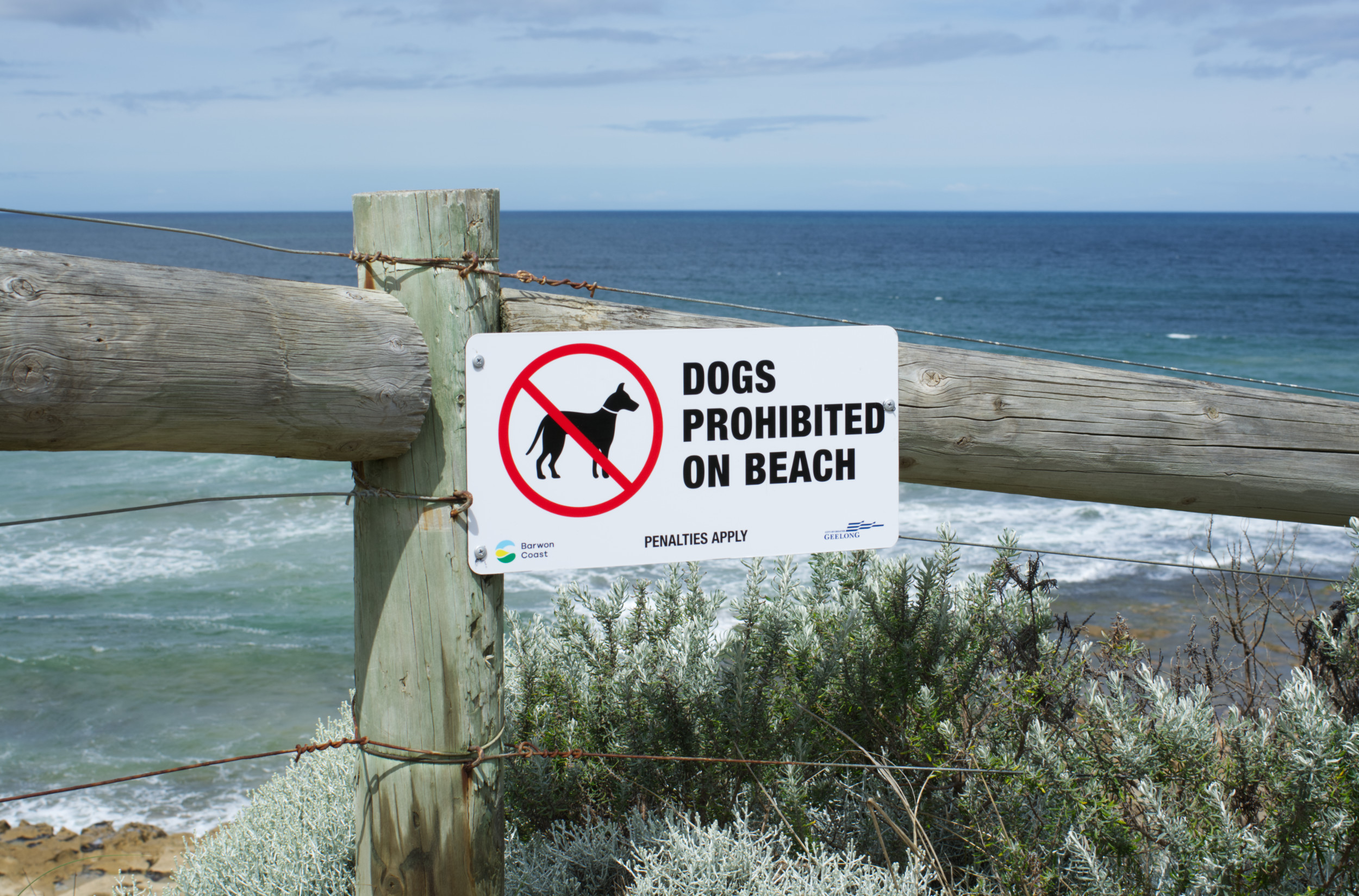
How you can help
- Always access the beach using the numbered pathways
- Only recreate and play on the beach zone well away from the base of the sand dune
- Stick to the boating speed limit of 5 knots when heading down the estuary and the coastline for 200 metres
- Become healthier by walking that extra 50 metres to use existing built assets
- Do your bit for wildlife – when you see wildlife, walk the other way
- Take 3 for the Sea – pick up 3 pieces of litter if safe to do so
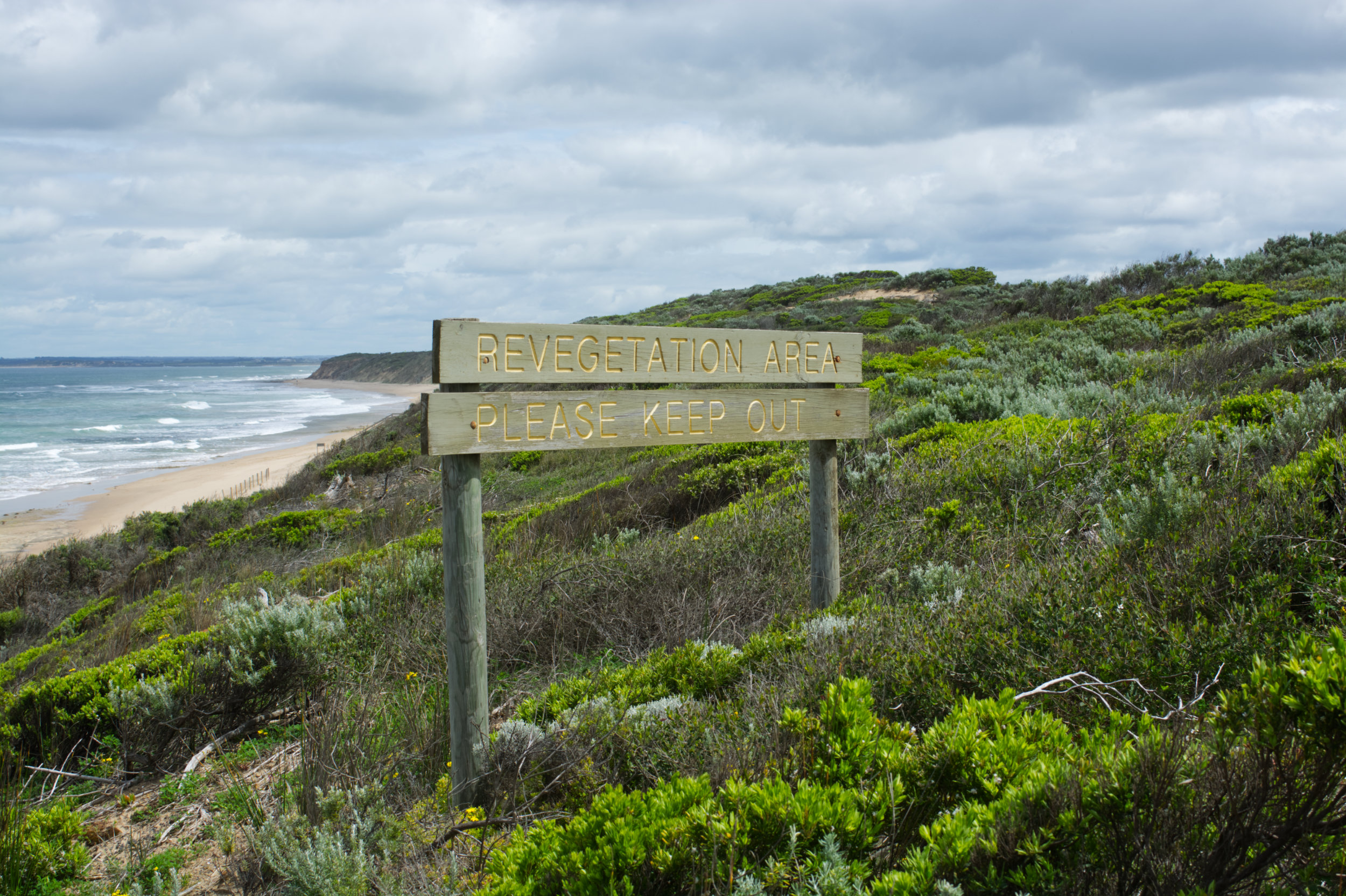
Learn more
Click any of the buttons below to find out more.
Fishing
Recreational fishing is a very popular pastime. Although the Barwon Bluff Marine Sanctuary is a no fishing zone, fishing is permitted nearby and this can impact on surrounding natural areas. Unwanted snags or littering can have serious impacts on non-target wildlife such as birds and seals. Lost fishing line and tackle such as soft plastic lures, squid jigs, hooks, weights, bait bags and discarded fish waste that may still contain fishing gear can all impact on other animals.
In the old days, fish hooks were made from natural materials such as bones and so did not impact on the environment. Today we have a selection of fish hooks made from a range of inorganic materials. Did you know that wire hooks have no protective treatment enabling them to break down more quickly? Treatments are used to strengthen some hooks, with stainless steel hooks taking the longest to break down.
Fishing responsibly can minimise entanglements, hook injuries and wildlife ingesting fishing tackle and microplastics.
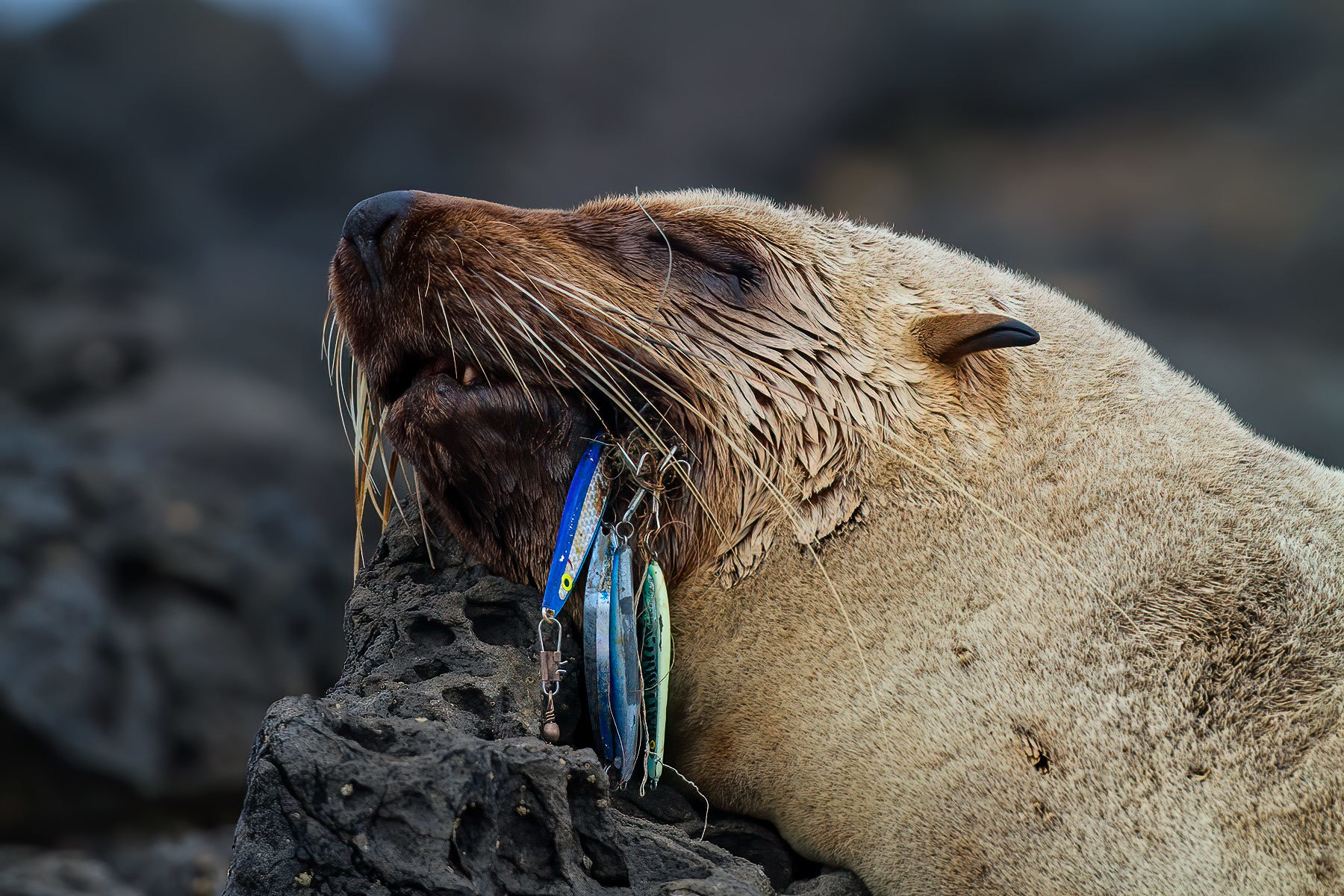
How you can help?
- Know where you can fish. Check you are not in the marine sanctuary
- Choose green fishing gear
- Whilst fishing, be sure to place your unwanted fishing gear into a secure container for bin disposal
- Do your bit, if safe to do so and pick it up if it’s not yours
- Use Seal the Loop bins or other bins nearby
- Check all fish carcasses for removal of fishing gear before appropriate disposal
- Share your knowledge and experiences with others
Learn more
Click any of the buttons below to explore resources and further information.
Rockpooling
The rock pools of the Barwon Bluff Marine Sanctuary are a great place to discover and learn about hundreds of species of marine plants and animals. The Sanctuary came into existence November 2002 to protect the plants and the animals that call the Bluff home and as a result, there are a number of restrictions. The Bluff is a ‘no-take zone’ which means it is illegal to remove anything – fish, plants or animals such as crabs, rocks, seaweed or even shells. Everything is an important part of the environment. The Bluff is also a dog free zone. As a result of these protections, many species have increased in abundance and some, like Western Blue Groper, have returned.
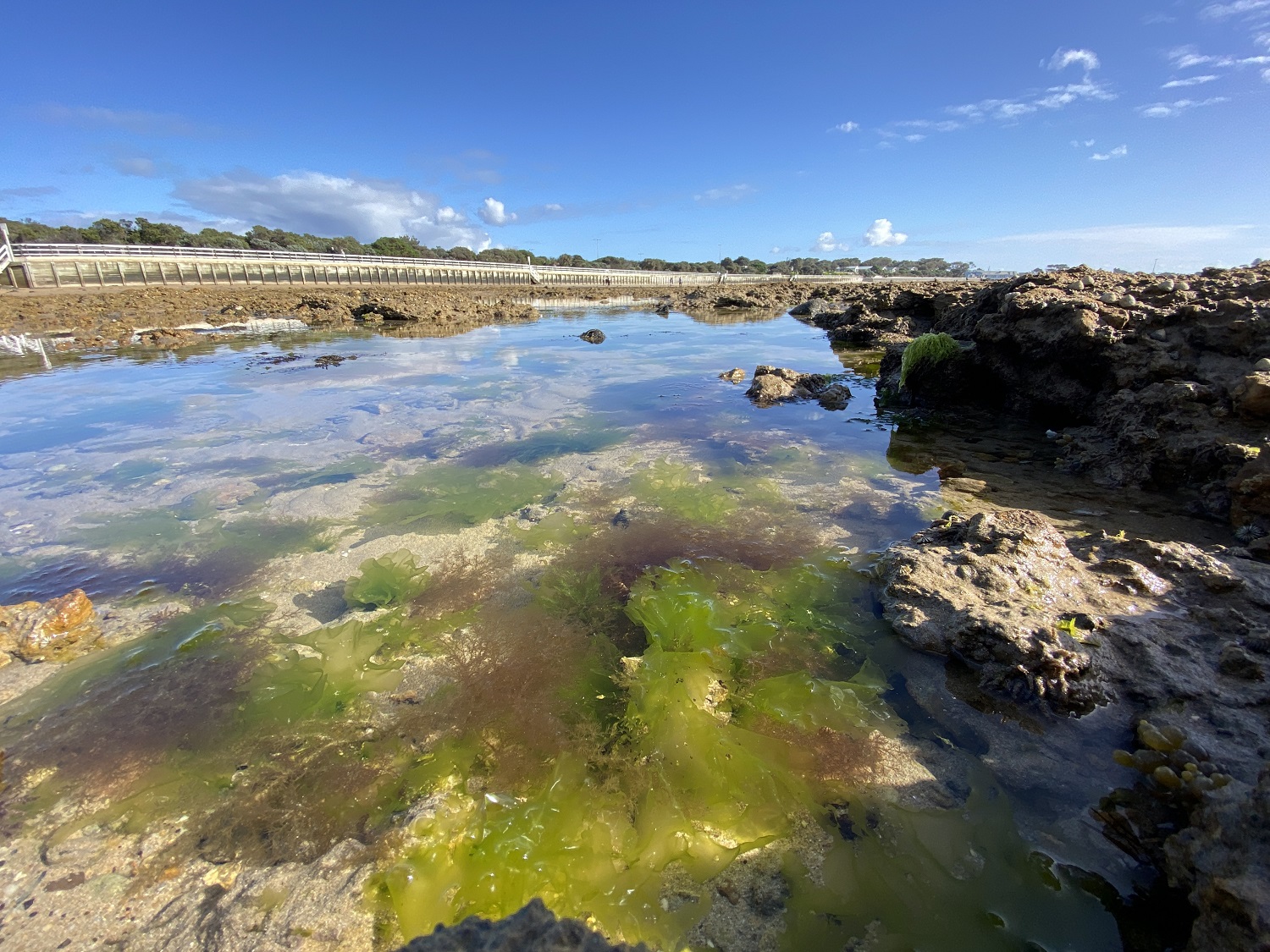
The dynamic rockpool reefs have loose, slippery rocks, dangerous tides, and dark places that make great hiding places for the Blue-ringed Octopus. Rocks are home to many tiny animals; from barnacles, limpets, periwinkles, mussels, as well as micro-algae and seaweeds. People travelling over the rocks can trample and damage these plants and animals, while the constant turning over of rocks can leave species exposed to heat and predators. There is a fine balance at play on the rockpools and all care should be taken.
How you can help
- Watch your feet to avoid stepping on the living animals and plants on the rocks
- Walk slowly and steadily over the rocks to avoid falling
- Protect our marine life by not turning over rocks
- Leave only footprints, only take rubbish
- Keep hands out of places where you cannot clearly see – things can be sharp, pointy and bitey
- Stay safe and always face the incoming waves
- Know where you can fish
- Leave empty shells for homes for other animals
- Report marine pests at marine.pests@agriculture.vic.gov.au
Learn more
Click the buttons below to find out more.
Photography
Geoff Gates (Australian Fur Seal)
Naomi Wells (all others)